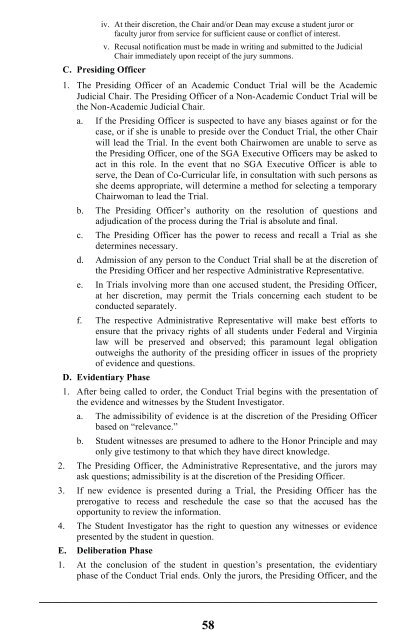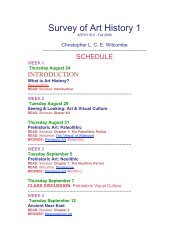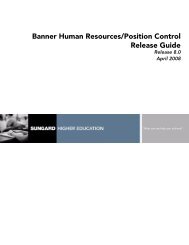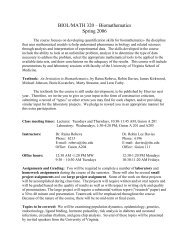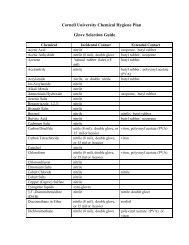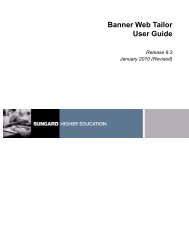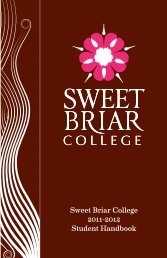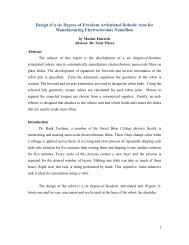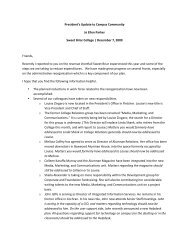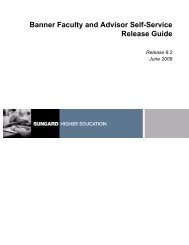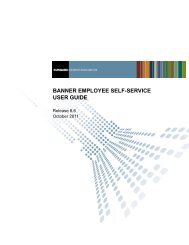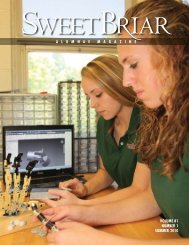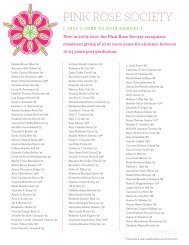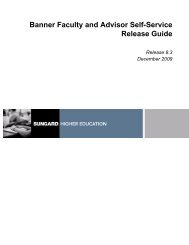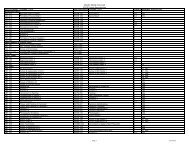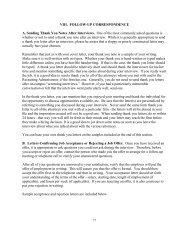Student Handbook - Sweet Briar College
Student Handbook - Sweet Briar College
Student Handbook - Sweet Briar College
You also want an ePaper? Increase the reach of your titles
YUMPU automatically turns print PDFs into web optimized ePapers that Google loves.
iv. At their discretion, the Chair and/or Dean may excuse a student juror or<br />
faculty juror from service for sufficient cause or conflict of interest.<br />
v. Recusal notification must be made in writing and submitted to the Judicial<br />
Chair immediately upon receipt of the jury summons.<br />
C. Presiding Officer<br />
1. The Presiding Officer of an Academic Conduct Trial will be the Academic<br />
Judicial Chair. The Presiding Officer of a Non-Academic Conduct Trial will be<br />
the Non-Academic Judicial Chair.<br />
a. If the Presiding Officer is suspected to have any biases against or for the<br />
case, or if she is unable to preside over the Conduct Trial, the other Chair<br />
will lead the Trial. In the event both Chairwomen are unable to serve as<br />
the Presiding Officer, one of the SGA Executive Officers may be asked to<br />
act in this role. In the event that no SGA Executive Officer is able to<br />
serve, the Dean of Co-Curricular life, in consultation with such persons as<br />
she deems appropriate, will determine a method for selecting a temporary<br />
Chairwoman to lead the Trial.<br />
b. The Presiding Officer’s authority on the resolution of questions and<br />
adjudication of the process during the Trial is absolute and final.<br />
c. The Presiding Officer has the power to recess and recall a Trial as she<br />
determines necessary.<br />
d. Admission of any person to the Conduct Trial shall be at the discretion of<br />
the Presiding Officer and her respective Administrative Representative.<br />
e. In Trials involving more than one accused student, the Presiding Officer,<br />
at her discretion, may permit the Trials concerning each student to be<br />
conducted separately.<br />
f. The respective Administrative Representative will make best efforts to<br />
ensure that the privacy rights of all students under Federal and Virginia<br />
law will be preserved and observed; this paramount legal obligation<br />
outweighs the authority of the presiding officer in issues of the propriety<br />
of evidence and questions.<br />
D. Evidentiary Phase<br />
1. After being called to order, the Conduct Trial begins with the presentation of<br />
the evidence and witnesses by the <strong>Student</strong> Investigator.<br />
a. The admissibility of evidence is at the discretion of the Presiding Officer<br />
based on “relevance.”<br />
b. <strong>Student</strong> witnesses are presumed to adhere to the Honor Principle and may<br />
only give testimony to that which they have direct knowledge.<br />
2. The Presiding Officer, the Administrative Representative, and the jurors may<br />
ask questions; admissibility is at the discretion of the Presiding Officer.<br />
3. If new evidence is presented during a Trial, the Presiding Officer has the<br />
prerogative to recess and reschedule the case so that the accused has the<br />
opportunity to review the information.<br />
4. The <strong>Student</strong> Investigator has the right to question any witnesses or evidence<br />
presented by the student in question.<br />
E. Deliberation Phase<br />
1. At the conclusion of the student in question’s presentation, the evidentiary<br />
phase of the Conduct Trial ends. Only the jurors, the Presiding Officer, and the<br />
______________________________________________________<br />
58


